Amid the Ukraine crisis, looking again at Putin, the one-man show the West doesn’t understand
By Fiona Hill | February 13, 2022
Amid the Ukraine crisis, looking again at Putin, the one-man show the West doesn’t understand
By Fiona Hill | February 13, 2022
Editor’s note: This article was originally published in the May 2016 issue of the Bulletin. It is republished here because of President Putin’s role in massing Russian troops on the border of Ukraine. For full Bulletin coverage of the Ukraine crisis, click here.
Putin’s Russia is a one-man show. Yes, Putin has around him a group of associates (“cronies” as they are often called) whose relationships extend back decades – in St. Petersburg, where Putin grew up, studied, first joined the KGB, and became deputy mayor; in Moscow, where Putin moved in 1996 and began his ascent toward the presidency; and in Dresden, in the former East Germany, where Putin was posted by the KGB in the 1980s. But this group of men (they are all men) does not represent the kind of “old-boy” network most are accustomed to. Putin’s is a “one-boy” network.” He may listen to the counsel of his friends or not. We do not actually know. The circle is extremely narrow and difficult to penetrate, even for supposed Russian political insiders. What we do know is that there is no oligarchy or separate set of economic, business, or political interests that compete with Putin. In the end, he makes the decisions.
This one-man show has deep roots in Russian political culture. A small inner circle that pivots around a single leader was the central element during long periods in both prerevolutionary czarist Russia and in the Soviet system. There are other elements of historical continuity in Putin’s system. For him, the Soviet-era international paradigm has not changed so much. Yes, communism is gone, and the Soviet Union has crumbled, but from his vantage point, Russia did not go anywhere. Military might still makes right, and wars still frame the playing field. In Putin’s view, the United States made this clear with its 2003 invasion of Iraq, shortly after the 2001 American intervention in Afghanistan. Russia’s own military operations in Georgia, Ukraine, and Syria brought Russia back into the age-old game. There are China and other new players to contend with, but the old adversary, the United States, has been pared down to size in relative terms, which gives Russia more opportunity to assert itself.
The idea that Russia is – as President Obama famously put it during a March 2014 press conference – no more than “a regional power” is antithetical to Putin’s core beliefs about Russia’s status and position in the world (Wilson 2014). Russians believe their state has a unique history, culture, and language, and special privileges internationally (Torbakov 2015). Russian public opinion polls since the early 2000s, irrespective of the influence of state-run media, indicate how strongly these ideas resonate with a broad swath of the Russian population. Putin’s popularity at home is in large part derived from his ability in his domestic and foreign policies to present a majority of Russians with what they want to see and hear, as well as what they want to have (Kolesnikov 2015). Vladimir Putin is a classic Russian conservative political thinker. In many respects, if it were not for his methods, Vladimir Putin’s politics would fit into the populist mold of a range of politicians in Europe and the United States on both the far right and the far left. (There is a strongly paternalistic streak in Russian politics that tends to bring both political poles together.)
Where Putin represents a real break from the Russian or Soviet pasts, and an anomaly in any international context, is the way he approaches running the country. As a former KGB agent, Putin operates very differently from a president who climbed the ranks of a political party – including both of his predecessors, first post-Soviet Russian President Boris Yeltsin and last Secretary General of the Soviet Communist Party and President of the USSR Mikhail Gorbachev. Operatives like Putin usually have political oversight, political handlers, and an institutional frame. Putin himself was subject to these constraints in his previous career. Today, Putin has no such constraints. There are no significant checks and balances on his presidential power. There is no larger institutional arrangement, like a Soviet politburo or political party, standing behind him. The Russian presidency and the Russian constitution are essentially fused, with each guaranteeing the other. Other state institutions, from the cabinet of ministers to the Russian Duma (parliament), have been systematically downgraded to be little more than rubber stamps for presidential proposals. Putin is the political oversight. He is the operative who runs himself (Hill and Gaddy 2015).
The operative as autocrat
Politicians in the West, with their backgrounds in party politics, business, or other more conventional spheres – including the military establishment – simply have a very hard time understanding just how different Putin is and why he is different. Vladimir Putin, the operative-as-autocrat, is without precedent either in Russian history, or at the top of a modern state anywhere else in the world. No other leader has worked his way, as Putin did, through the back corridors of the intelligence services to become the president. Former Soviet leader Yuri Andropov was chairman of the KGB for 15 years, but Andropov never actually served in the agency; he was a career Communist Party functionary (Garthoff 2015). Putin, by contrast, was not a Communist luminary. Nor had he any high-profile executive experience before coming to Moscow in 1996. Since ascending to the presidency in 2000, he has fused intelligence, security, politics, and even oversight of the commanding heights of the economy into one Kremlin-based operating system rooted in informal networks of power.
Rather than focus on Putin’s uniqueness, Western observers reach for conventional descriptions of him and his behavior. He is, they variously insist, a “run-of-the-mill” autocrat, or a petty kleptocrat who is focused on saving his own skin, shoring up his regime, and siphoning off state assets. One thing that virtually no one wants to concede is that Putin is a skilled strategist. Rather, he is dubbed as a naked opportunist, or, at best, a talented tactician. But Putin is a strategist – if we understand what that term means for someone coming from a background in the Soviet-era KGB. For Putin, to plan strategically means planning for contingencies. You have to expect the unexpected, be able to learn from mistakes (both your own and those of others), and to adapt (Hill and Gaddy 2015). This is something all operatives learned in the KGB: operations inevitably go wrong; events throw off the best-laid plans. You have to keep your options open and have backup plans. You must be willing to improvise last-minute exit stratagems, and make the most of unexpected opportunities, if you are to live to fight another day and keep one step ahead of your adversaries. Putin’s next steps always depend on how everyone else reacts. His ability to translate quick thinking into action and change course at the last minute gives him a significant advantage over Western leaders, who are always institutionally constrained in their decision-making, and usually have limits on the methods they can use to respond to a crisis.
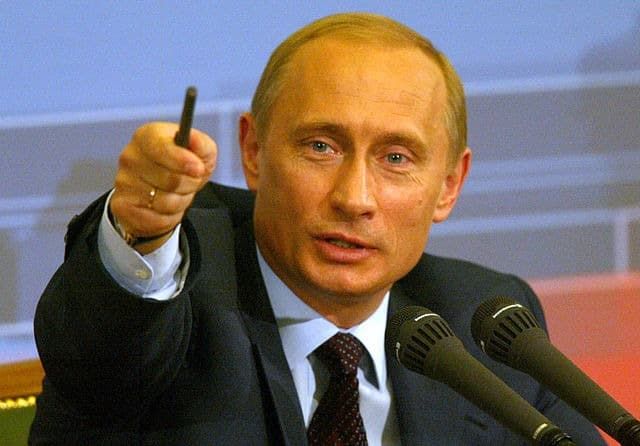
Putin the infallible?
All of this by no means implies that Putin is all-powerful. He is not. Putin has limits, and it is important to recognize them. Overestimating him can be as dangerous as underestimating him. One of his biggest weaknesses, and one that can lead Western leaders to a dangerous misreading, is how little Putin understands about them – their motives, their mentality, and, also, their values and principles – both in Europe and the United States. Westerners accept that much about him is a mystery. He and his Kremlin spin doctors have worked hard at making him as inscrutable and unpredictable as possible to increase his tactical advantage. But in contrast, Western leaders consider that our transparent societies are an open book for him. In this highly integrated 21st century world, with its rapid flow of information and ease of travel, surely Vladimir Putin knows what and how his opponents think.
But Putin does not know the West well. He has limited experience living abroad – in Dresden in East Germany from 1985–1990. This was hardly a window on the West. Although Putin speaks German, and speaks it well, he has only a handful of contacts with European and US political and business insiders, some of whom he met as deputy mayor of St. Petersburg in the 1990s. Putin does not have deep insight into the way our societies work, nor does he care to obtain it. His KGB training taught him to focus on individuals, not on societies. His mission was to target the vulnerabilities of individuals to manipulate them to his advantage. Putin does not believe he has to pay attention to larger social or political dynamics, as long as he knows how to – as he puts it – “work with people” and “work with information” at the top of any political system to get his way. These are the two skills he is most proud of acquiring during his covert career in the KGB and the two that, he says himself, he applies on a daily basis in his overt political career. For all that, Putin has a very incomplete grasp of what motivates or drives Western leaders and the contexts in which they operate (Hill and Gaddy 2015).
When Putin tries to interpret what we do, as his speeches and interviews often reveal, he falls back on his (and Russia’s) age-old threat perceptions. He is not always able to distinguish fiction from fact when he looks out at the West, because his tools for doing so are sometimes inadequate. Vladimir Putin has spent a great deal of time in his professional life engaged in espionage and counterespionage, bending the truth, manipulating facts, and playing with fictions (including about his own biography). One of his main skills is to dissemble – to lie. This is not a character flaw. The operative must conceal his true identity and intentions at all times. However, Putin assumes other leaders are always doing the same. As he frequently asserts in both public and private, he believes there are plots and conspiracies by the United States and the West directed against him and against Russia. Such conspiracy thinking is consistent with his logic. The plots make sense in terms of his frame of reference – as seen through his filters of the Cold War, his time as a KGB operative in East Germany in the late 1980s, and the prevailing political views of conservative Russia circles.
When Edward Snowden landed in Moscow in June 2013, having blown the whistle on US government mass surveillance, Putin clearly felt his views were vindicated. Efforts by Western interlocutors to persuade Putin that Snowden’s revelations were part of a much more complex picture, tied to US intelligence overreach in response to the 9/11 terrorist attacks, were dismissed as a ploy. Putin’s mindset is deeply rooted. He and his inner circle do not trust the United States. Putin personally – as he underscores – finds it hard to trust anyone. This is a source of great danger in Russia’s relations with the West.
Mutual incomprehension
For years, Putin and other Russian officials have complained bitterly, both in public and in private, that we are not listening to them. We are, in fact, listening, but we are not hearing the messages (Liik 2015). Putin’s messages are always simultaneously directed to two audiences, internal and external. To Russian ears, Putin is very clear about what he and Russia really want, but his plot-driven analysis and way of trying to communicate his demands do not work with Western interlocutors. Putin’s language is loaded in Russian – a simple translation into English of what he says does not convey the deeper meaning behind the words and expressions. The language of Russian politics and diplomacy that Putin favors is inherently “alpha male.” At times Putin is deliberately crude when he wants to stress that Russia will make good on every threat as well as every promise. If Putin says he will do something, then he is prepared to do it. Russians understand this.
Western audiences rarely have the patience to parse Putin’s words in that way. The fact that he increasingly is delivering messages through deeds as well as words makes it doubly difficult for them to understand him. Western audiences focus on the style of delivery, the erroneous or completely false assertions in Putin’s statements about Western actions, the threats, and the behavior. Putin’s tone is offensive to Western ears; his ideas jarring and retrograde. Western audiences are put off by the Putin echo chamber – the fact that every Russian official sounds just like him. They simply do not understand why the Putin inner circle should have such a different worldview from the West’s, 25 years after the collapse of the Soviet Union. In Western views, the Russians should adopt a different discourse when conducting foreign policy. As a result, we completely miss the core message that Putin is trying to transmit. This frustrates Putin and causes him to think that he has to deliver the message again; but even more forcefully – or even forcibly, by backing up his words with military action. In doing so, he merely alienates his interlocutors in the West even more. The bottom line is that Putin does not really know how to talk to Western audiences (which are in any case diverse). Neither do most other Russian politicians who come from the same milieu; nor do Western leaders, for that matter, know how to talk to the Russians (Liik 2015).
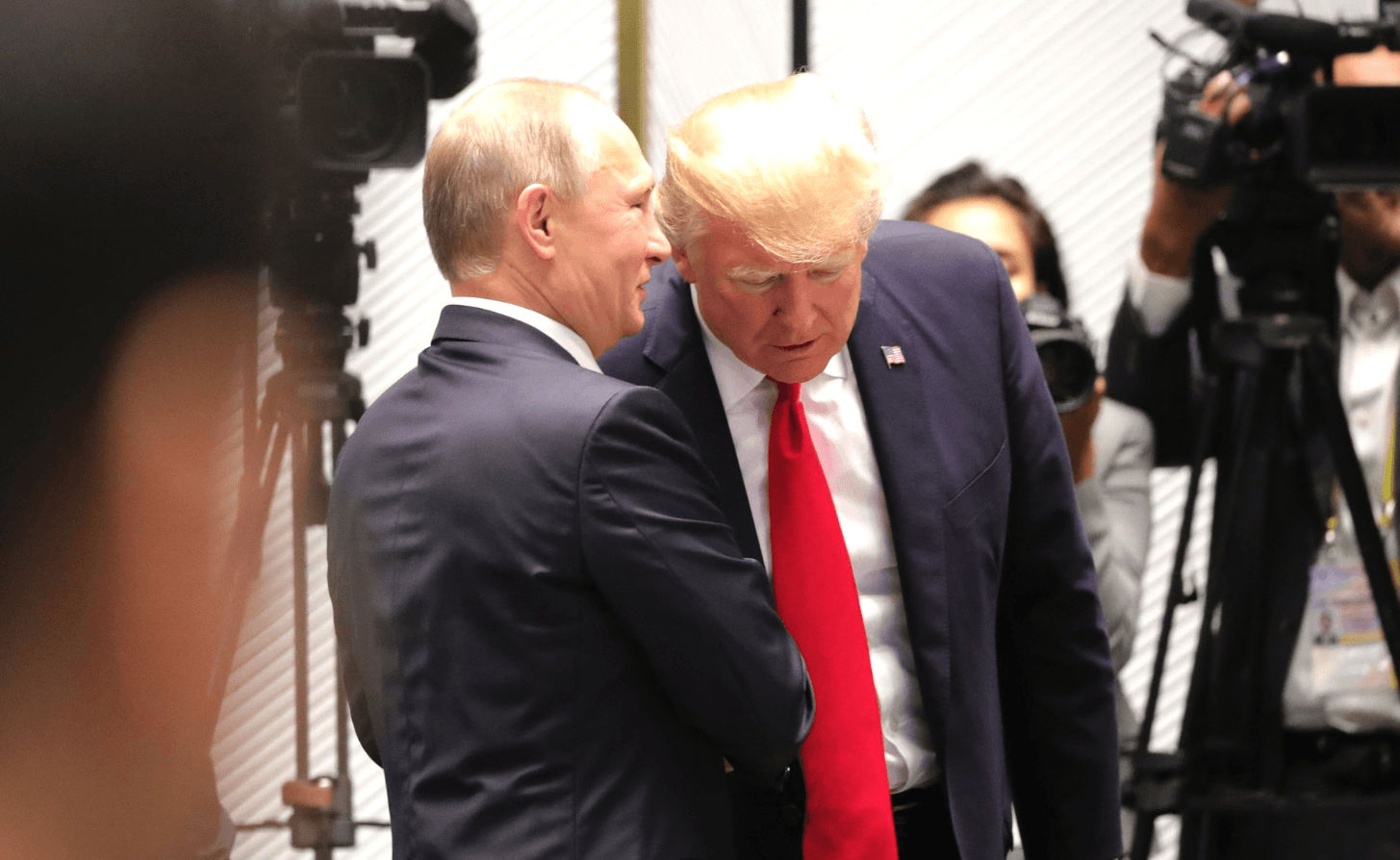
Seeking security
So what is the message that we are missing? What does Putin want? The answer is surprisingly straightforward: he wants security. He wants the rest of the world – but most particularly, the leader of that rest of the world, the United States – to acknowledge Russia as a sovereign country that defines and defends its own vital interests as it sees fit, and is not “pushed around” by others. The word Russians use for “security,” however, complicates the issue. It is part of what is, in essence, a deeply rooted mutual incomprehension problem between Russia and the West. The Russian word is “bezopasnost,” which in English literally means the “absence of threats.” As a matter of course, no one, no country, can permanently remove all threats. You can remove some; others you can only mitigate; still others you can try to deflect. This is a permanent struggle; an endeavor for Sisyphus. You can be more or less secure, but never fully secure. And where do Putin and Russians see threats? What are these threats to – the future of the Russian state, or are there other kinds of threats?
In Putin’s reading of the last decade or more, the threats come almost exclusively from the United States. This is another part of the problem – US leaders do not appreciate Russia’s security concerns. In fact, because those concerns are about the United States, American leaders do not believe them. They find it hard to grasp that Russia still sees the United States as a threat after the end of the Cold War competition. Even though the superpower nuclear arsenals were retained, US leaders thought that, after the fall of the Berlin Wall in 1989, they had created a new framework for relations with Russia, and that the new Russia, under President Boris Yeltsin, had agreed to that new framework. Putin sees it differently. Russians (at least Russians like him) never agreed to accept the role the West assigned them in the new framework – the status of a large but second-rank European country (Hill and Gaddy 2015). If treaties were signed, or pledges made, says Putin, it was because post-Soviet Russia was too weak to say no. It was a fragmented and chaotic state, on the verge of bankruptcy, kept on life support by International Monetary Fund (IMF) loans. The Russia of the 1990s that the West so admired was, in practice, not a sovereign country.
In the first decade of the 2000s, Putin made Russia solvent, and sovereign, again by using windfall revenues from high oil prices to pay off Russia’s debts. He put Russia politically back on its feet by strengthening the presidency, and by creating new international trade and other relations. He resolved to return to the presidency for a third term to ensure his legacy. Then domestic protests started in 2011–2012. This was a significant turning point in Putin’s view of the United States and the West. Although the origins of the protests were actually in the success of Putin’s early policies – a new prosperous professional class demanding more political choices in the Russian parliamentary and presidential elections – Putin firmly believed they were the result of outside influence. Putin views Western efforts to promote democracy and liberal markets abroad as nothing less than the continuation of Cold War “active measures” by Western intelligence agencies to undermine their enemies’ political systems and pursue regime change in selected countries. In 2011–2012, against the background of so-called color revolutions in some of Russia’s neighboring states, and then the upheavals of the Arab Spring, Putin was convinced that the West was now “out to get rid of him” (Hill and Gaddy 2015; Myers 2015).
In Putin’s mindset, the main threats to Russia right now lie inside Russia, where Trojan horses and Fifth Columnists have been deployed by the West to exacerbate and exploit Russia’s internal contradictions and divisions. In the Russian worldview, the sprawling multiethnic and multiconfessional states of the Russian empire and the Soviet Union were always strong in territory, but weak politically. The Soviet Union was vulnerable because of all the infighting among national elites, just as the Russian empire fell apart because of separatist and popular revolts when it was embroiled in war. In each case, in Putin’s view, the West – the Germans in World War I, the United States in the Cold War – exploited internal fissures to help bring the colossus to its knees. For Russia, strength only comes through unity that is imposed rigidly and ruthlessly from above to close the fissures.
Everything Western leaders and analysts say about Russia’s internal weakness – economic, ethnic, political, and religious – or about the inevitability that Putin will fail in securing his objectives, or that the state will be pulled apart by domestic tensions, gets Putin’s antennae up. It is a signal to him that the United States and the West are “at it again” – trying to play with opposition and other groups to bring down Russia. Whenever we talk of Russia’s weakness, we increase Putin’s and other Russians’ sense of vulnerability. In feeling threatened, they react forcefully. Putin doubles down, he does not draw back. From his perspective, it is the West that needs to back off or be pushed back.
The Putin paradox
Putin’s and Russia’s biggest problem is that, in trying to ensure its security against the United States and the entire West, its resources are far inferior in conventional military and economic terms. Russia is still the underdog. For Putin, the only recourse to this imbalance is to return to his KGB operative’s training. The Soviet Union indebted and doomed itself in the 1980s when Moscow began the arms race with the United States. Russia has assets it can use, but its contemporary military reform and modernization is still underway. So, in an “asymmetric” struggle with the United States, Putin and Russia have to be innovative, catch the West off guard, and fight dirty. Putin and his security team approach international affairs as a series of missions – they are often remarkably frank in using this language to describe their approach. Putin makes it clear that Russia will act on multiple fronts at the same time and do things that Western leaders would not contemplate – including the threat of crossing the nuclear threshold and breaking the post-World War II taboo against using a battlefield nuclear weapon (Gaddy and O’Hanlon 2015; Hill 2016).
The paradox of all this – including the nuclear brinksmanship – is that although Putin wants the West to back off and leave Russia alone, he does not want Russia to become a pariah state, stuck on the outside of the big international institutions and decisions. This would be detrimental to Russian interests. Putin wants to intimidate Western leaders and their publics, but his big mission is to get Russia a seat at the table with the West, on Russia’s terms, which he declares is on “equal” terms with the United States. Putin wants to thrash out a deal with the United States on any critical issue that could affect Russia’s interests. The ultimate problem for the United States and the West is how to handle these demands, at a juncture when Putin has seemed set on bombing his way to that table, with interventions in Ukraine and Syria, and negotiating terms at gunpoint. Putin’s behavior is completely unacceptable to Western leaders. But they cannot simply reject the idea of dealing with Russia in international affairs. There are common crises that the West and Russia need to solve together, like planning the future of the Middle East beyond Syria, stopping the proliferation of nuclear weapons, countering transnational terrorism, adapting to climate change, and responding to pandemic disease. The best way to ensure that Putin will act as a spoiler on these and other issues is to try to isolate Russia.
Putin is perplexing for most Western leaders. Western and Russian societies may not currently share many common values or perspectives on the world. We may not see eye-to-eye on all aspects of how to solve a particular crisis, but we have to figure out real channels for communication. Western societies tend to be more informal and mix levels of authority, especially in the United States. Many people in the American system have a voice and genuine plenipotentiary power. Only one does in Russia. To make any headway, US and other Western leaders have to talk to Putin. In Russia, if you want to have political traction, then interactions have to be peer-to-peer, at the appropriate level, with no mixed messages or promises that cannot be delivered. What Russia demands and what Western leaders are willing to give may be irreconcilable. But that is what negotiation is all about – moving toward mutually acceptable positions. To negotiate, you have to talk, even to those you do not like, including Russian President Vladimir Putin.
Together, we make the world safer.
The Bulletin elevates expert voices above the noise. But as an independent nonprofit organization, our operations depend on the support of readers like you. Help us continue to deliver quality journalism that holds leaders accountable. Your support of our work at any level is important. In return, we promise our coverage will be understandable, influential, vigilant, solution-oriented, and fair-minded. Together we can make a difference.
Keywords: 2024 election, Russia, Vladimir Putin, archive75
Topics: Nuclear Risk

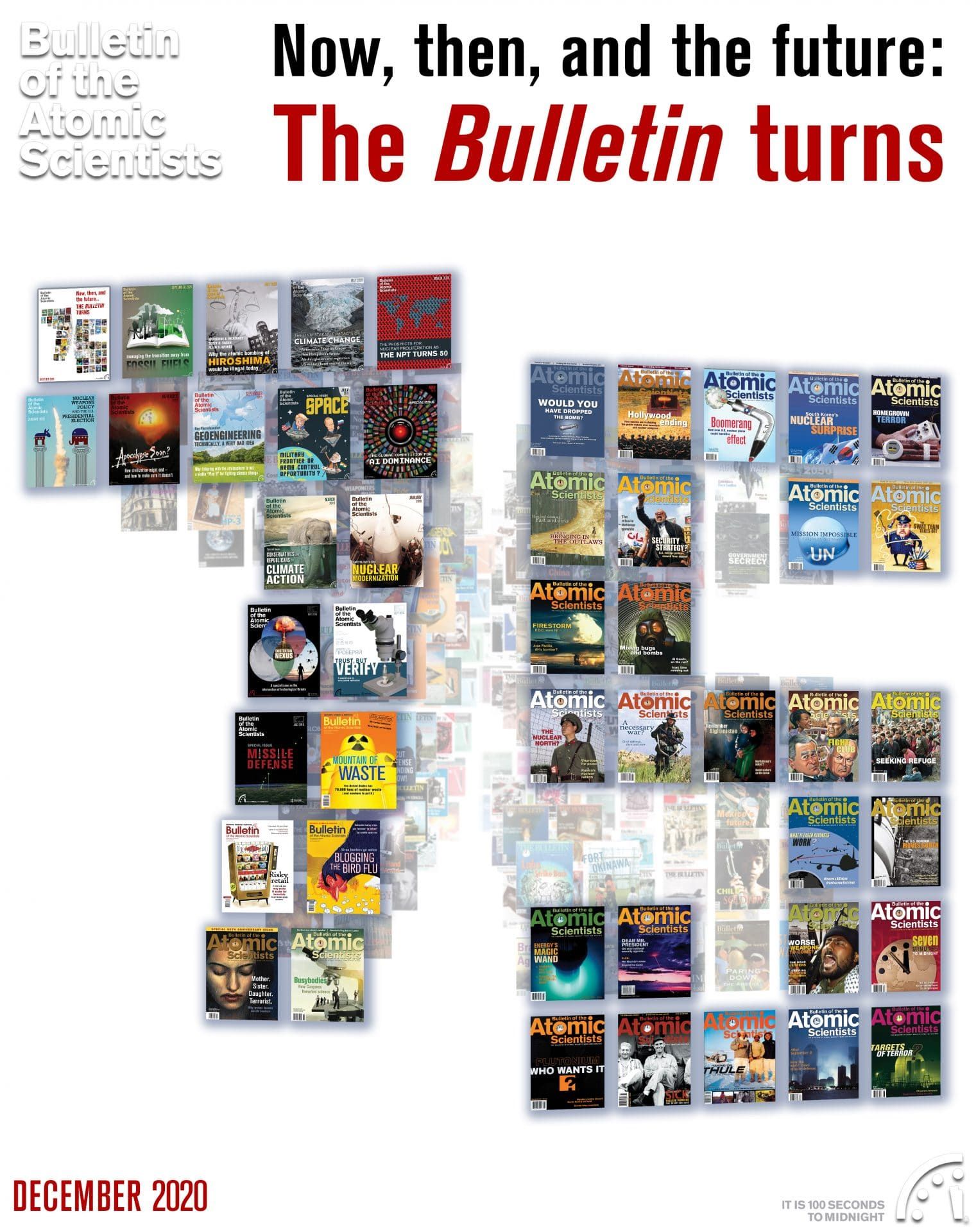
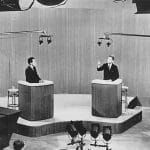
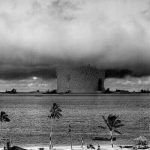
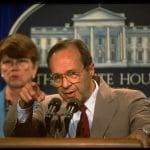
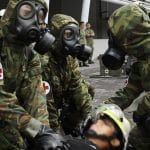
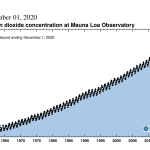
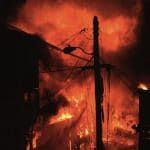
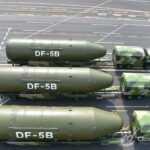


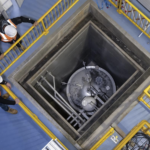
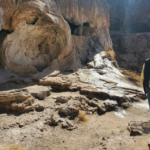

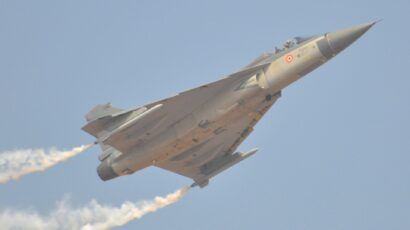







The ultimate problem for the United States and the West is how to handle these demands, at a juncture when Putin has seemed set on bombing his way to that table, with interventions in Ukraine and Syria, and negotiating terms at gunpoint. “…bombing his way to that table…and…negotiating terms at gunpoint.” As I recollect these were the preferred methods the West (read United States) used in dealing with Serbia, Libya, Syria, Iraq and Afghanistan. And certainly how our neocons would like to deal with Iran. One has to love the West’s continued harping on the so-called “rules- based international order.”… Read more »